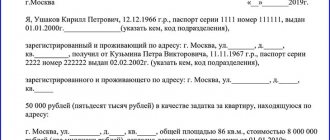What is included in the concept of major repairs?
Overhaul (any) is planned work to bring the object to the condition in which it was originally, or as close as possible to that, with the replacement of any of its parts if necessary.
In relation to multi-apartment residential buildings (MCD), this means the restoration or replacement of intra-house systems and communications, roofs, basements, foundations, facades, etc., which are carried out at the expense of the capital repair fund.
Article 166 of the Housing Code of the Russian Federation dated December 29, 2004 No. 188-FZ (last edition dated June 11, 2021) - the general regulatory framework on the topic “major repairs of a building”; what is included in the (specific) list depends on the initial technical characteristics of the apartment building, the year it was built, wear and tear, and the region.
The key issue specified in the law is financing. It comes from a contribution fund into which residents pay; the amount is established by the constituent entities of the Russian Federation. Regions also determine a specific list of work at the expense of capital repairs and have the right to supplement it at their own discretion. The fund is formed either on a personal account at home or on the account of a regional operator.
ConsultantPlus experts examined how major renovations of residential buildings are carried out. Use these instructions for free.
Regional operator: concept, rights and obligations
In order for the regional capital repair program to be financed and executed in a timely and high-quality manner, a responsible authorized structure is needed. Such a structure is a regional operator, which is created in each subject of the Russian Federation in order to form and maintain a specialized fund for carrying out major repairs of residential buildings. In the language of the law, a regional operator is a legal entity registered by a constituent entity of the Russian Federation in the legal form of a fund (Article 178 of the Housing Code). As a general rule, the government of a constituent entity of the Russian Federation approves a package of regulatory documents regulating the activities of the fund, including the charter and regulations. Support for the activities of the regional operator is also carried out at the expense of the constituent entities of the Russian Federation.
A subject of the Russian Federation has the right to create several regional operators to exercise powers in certain territories of the region. The regional operator itself does not have the right to create its own divisions (branches, representative offices, etc.), since its activities are strictly regulated by regulations.
The regional operator carries out the functions of carrying out major repairs at the expense of its property. This property is formed due to:
- founder contributions;
- payments by owners of premises in apartment buildings, forming capital repair funds on a special account or the account of a regional operator (Part 1 of Article 179 of the Housing Code).
Thus, the regional operator accumulates contributions for major repairs paid by the owners of premises in the apartment building, either in its own account or in a special apartment account opened in the name of the regional operator.
For owners of premises in apartment buildings, this means that they are no longer the owners of the money transferred to the fund. In return, they receive the legal right to demand major repairs of the collective property of the house in the amount and time frame determined by the regional program for major repairs of houses.
If the cost of repair work exceeds the size of the capital construction fund, the regional operator of capital repairs of houses covers the losses against future revenues.
The regional operator is obliged:
- within the period established by law, provide apartment owners with the necessary list of works, estimates, procedures for financing major repairs and other documents related to the major repairs of houses;
- prepare assignments, project documents, be responsible for their quality and compliance with the law;
- engage third-party subcontractors and enter into agreements;
- control the work of subcontractors, compliance of the work performed with the design documents of the apartment building;
- accept work, sign acts and other documents;
- take into account contributions and other funds received into the capital construction fund separately for the house and separately for the owners of residential apartments;
- based on a written application from the homeowners, provide documents on transactions on a special account.
In addition to financing the costs of major repairs of common property in the apartment building (if necessary, using funds received from other sources), the functions of the regional operator, as a rule, include:
- interaction with state authorities and local governments in order to ensure timely major repairs of common property in apartment buildings;
- provision of consulting, informational, organizational and methodological assistance on the organization of major repairs of common property.
List of works for major repairs of apartment buildings
Everything that is listed in Article 166 of the Housing Code of the Russian Federation is just areas of work: the conditional “roof” - “walls” - “basement” for public use. This is a reconstruction or replacement:
- engineering systems - electricity, heating, gas supply, water supply, sewerage;
- elevators (cabins, equipment, shafts);
- roofs;
- general fellings;
- facades;
- foundations.
IMPORTANT!
This does not include maintenance of heating mains, water pipelines, etc. For example, the list of works related to the overhaul of overhead power lines (overhead electrical lines) is a different story, since the boundary of an apartment building is its wall or ASU (input distribution device) from the pole into the building. Everything outside is the responsibility of the network owners.
In some cases, the list of general house needs flows into the list of works for major repairs of an apartment (one, several or all) - if it is necessary to update or reconstruct load-bearing walls, ceilings, restore the load-bearing capacity of balconies and loggias, fences on them, etc.
We repeat: a specific list of works and (or) services, the amount of the minimum contribution, the procedure for monitoring the technical condition of objects, the criteria for the priority of major repairs, etc. are determined by the regulatory legal acts of the constituent entity of the Russian Federation. Somewhere such lists include the installation of fire-fighting automatics, somewhere - landscaping and landscaping of the local area, everywhere it is different.
Example. Law of the Nizhny Novgorod Region No. 159-Z dated November 28, 2013 (as amended on March 3, 2020) “On organizing major repairs of common property in apartment buildings.” There is a list of work carried out during the overhaul of apartment buildings in the region, which includes bringing to normal modern condition or replacing:
- in-house engineering systems of electricity, heat, gas, water supply, and wastewater disposal;
- elevators (unusable or expired), elevator shafts, machine and block rooms;
- roofs (including ventilation and roof exits);
- basements belonging to common property;
- renovation and (or) insulation of facades;
- MKD foundations;
- development of design, scientific design (for cultural heritage sites) and estimate documentation, conducting relevant examinations;
- construction control and technical supervision, inspection of the technical condition of apartment buildings;
- carrying out engineering surveys.
Choosing a method for determining the supplier
The method for placing a construction order depends on the type of work. When choosing a method for conducting a tender for major repairs, consider the following features:
- Works are purchased through an electronic auction when the main criterion is price.
- Work is carried out through an electronic competition if the qualifications and experience of the contractor are important.
- A competition with limited participation in electronic form - if the work requires special qualifications (reconstruction of architectural monuments, etc.) on the basis of clause 1, part 2, art. 56.1 44-FZ.
- Request for quotations in electronic form and purchase from a single source are used subject to the order limit and volume of purchases that have already been carried out by these methods (clause 2 of article 82.1, clause 4, clause 5, clause 9 of part 1 of article 93 44 -FZ).
- A request for proposals is carried out if the previous tender did not take place or if part of the terminated contract is being implemented (part 4 of article 55, clause 8 of part 2 of article 83, clause 6 of part 2 of article 83 44-FZ).
Government Order No. 471-r dated March 21, 2016 clarifies whether it is necessary to hold an auction for major road repairs: no, since these works are not on the auction list.
IMPORTANT!
Construction work (OKPD 2 41.2, 42 and 43) are excluded from the auction list, which was approved by government decree No. 471-r dated March 21, 2016.
Execute and amend the contract
The customer controls the progress of construction and the quality of materials during the entire period of execution of the contract.
If state construction supervision is provided for construction, the developer or technical customer sends a notice to the department about the start of construction (Part 5 of Article 52 of the Civil Code). Deadline: no less than seven working days before the start of construction.
Contract legislation allows for the extension of deadlines and changes in the price of a construction contract by agreement of the parties in the following cases:
- change in the scope of construction by no more than 10% of the contract price (clause “c” of Part 1 of Article 95 of 44-FZ);
- the occurrence of unforeseen circumstances during construction, if the contract execution period is at least a year (clause 8, part 1, article 95 44-FZ). A prerequisite for such a change is permission from the authorities. The duration of the contract and (or) its cost are subject to change by no more than 30%;
- the contractor did not meet the deadlines set by the customer. In this case, a one-time extension of the period is provided for a period that does not exceed the previous deadline for fulfilling the terms of the contract, provided that the contractor does not have a debt to the customer for a penalty (clause 9, part 1, article 95 44-FZ).
We draw up technical specifications
An integral part of the technical specifications for major repairs is design and estimate documentation, which contains (Part 12, Article 48 of the Civil Code):
- an explanatory note describing the procurement object for major repairs under 44-FZ for the contractor;
- architectural, planning, constructive, technological solutions;
- working drawings, which depict the object and its elements before and after major repairs, sketches and measurement plans;
- requirements for the quality and safety of repairs.
Also in the technical specifications we describe the procurement object and specify:
- Object name;
- construction deadlines;
- working conditions (mode, procedure for issuing passes, etc.);
- quality requirements (SNiPs, GOSTs, SanPiNs, etc.);
- requirement for removal of construction waste from the site;
- warranty obligations;
- material equivalence parameters.
IMPORTANT!
FAS allows the inclusion in the documentation of only part of the project - the estimate and indicates that the customer has the right to approve individual sections of the project independently.
Here is an example of a technical specification for the overhaul of premises in accordance with 44-FZ from the tender documentation:
We carry out the calculation of the NMCC
We justify the maximum tender price on the basis of the design and estimate method (Article 22 of Federal Law No. 44), taking into account the requirements of Order No. 841/pr dated December 23, 2019, which presuppose:
- Mandatory recalculation of prices from the date of drawing up estimates to the date of approval of documentation.
- Application of deflator indices.
We form a draft contract
The standard conditions of a construction contract were approved by order of the Ministry of Construction and Housing and Communal Services of the Russian Federation No. 9/pr dated January 14, 2020. According to the recommendations of the Ministry of Construction, standard conditions contain:
- construction schedule;
- delivery and unloading of construction materials by the contractor;
- availability of working documentation at the site;
- payment schedule;
- determining the cost of the construction stage.
When preparing a draft contract for selective or comprehensive overhaul, include in its provisions:
- terms and mode of construction;
- the contractor's obligation to keep a repair log;
- procedure for carrying out hidden work;
- the possibility of the customer making a decision on unilateral refusal of obligations under the contract if, in the process of its execution, it is revealed that the contractor does not comply with the requirements of Federal Law No. 44, including additional ones, which are specified in the tender documentation;
- the customer’s right to conduct technical supervision;
- unforeseen expenses and their maximum amount;
- deadline for processing the acceptance results;
- list of documents that the contractor provides for payment;
- warranty obligations;
- procedure for changing and terminating the contract.
Attach to the draft contract the documents in accordance with which the contractor carries out construction:
- Technical task.
- Statement.
- Project (if available).
- Estimates.
- Contract execution schedule.
Choosing a winner
The criteria for determining the contractor depend on the method of placing the order: an electronic auction for major repairs under 44-FZ involves selecting a winner based on the price criterion, and when holding competitions, non-cost criteria (qualification, etc.) are also important, which are specified in the customer’s documentation.
IMPORTANT!
If a major repair project is included in the tender documentation, the auction is held four hours after the end of submission of applications (Part 3 of Article 68 of 44-FZ).
Based on the results of the bidding and consideration of applications from tender participants, the customer creates a protocol for summing up the results, which contains the name of the winning organization.
Closing the contract
The contractor confirms the execution of the contract with the following documents:
- act of acceptance of completed work (KS-2);
- certificate of cost of work performed and expenses (KS-3);
- invoice for payment, invoice (if available);
- general work log (KS-6).
IMPORTANT!
If hidden work is identified, we add an inspection certificate to the package of documents.
The registration of permission to put the facility into operation is carried out by the customer on the basis of documents received from the contractor (Part 8 of Article 110.2 of 44-FZ).






